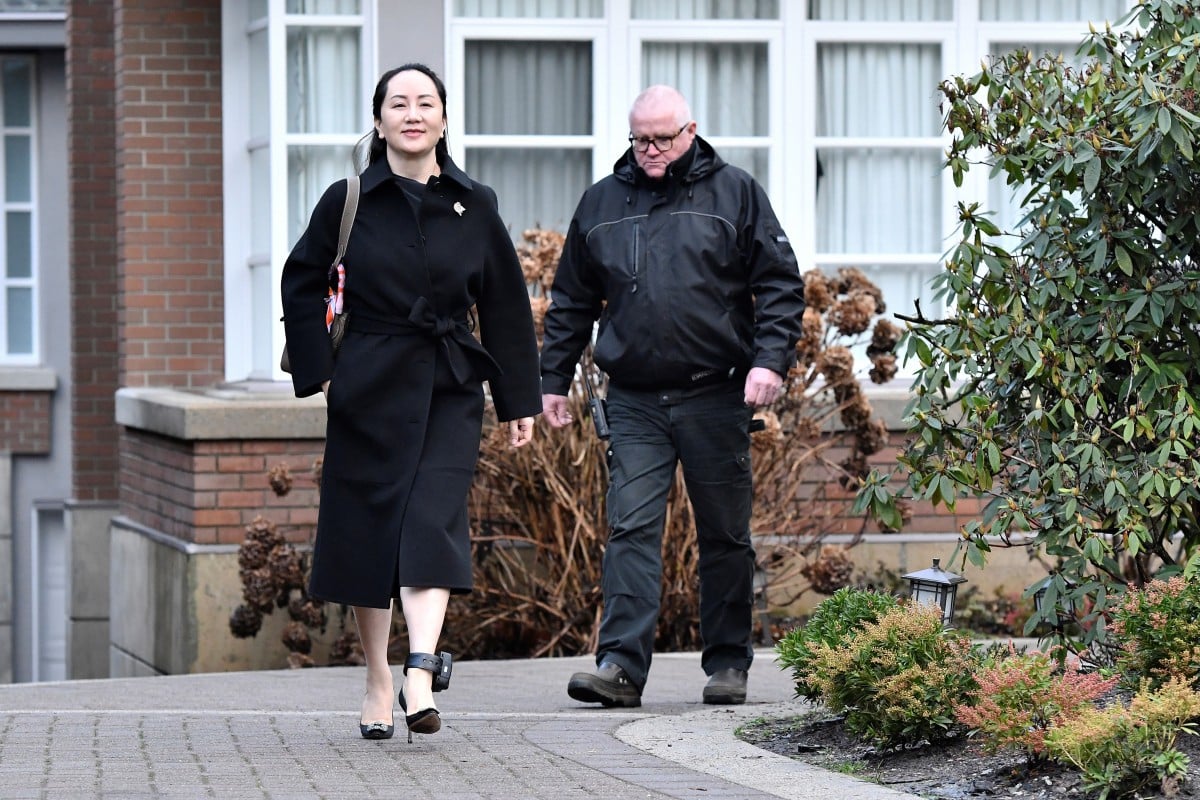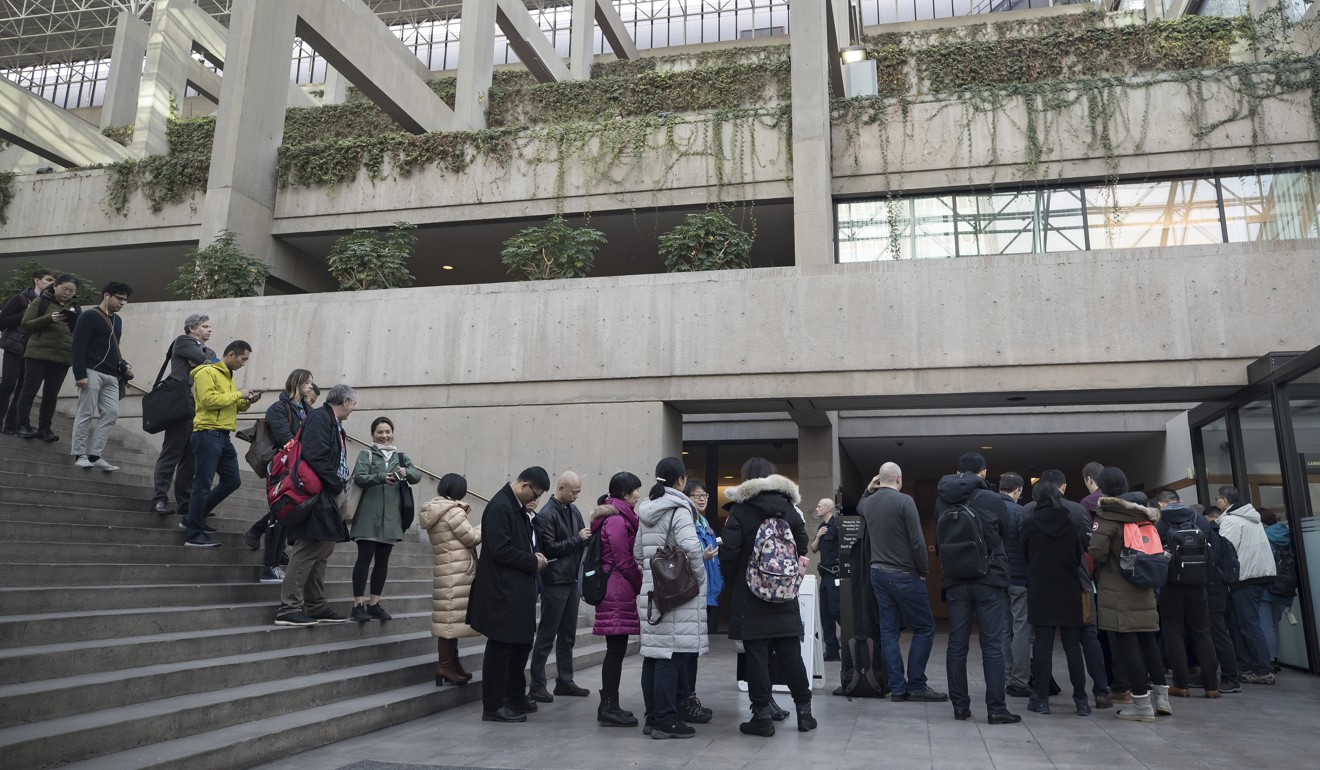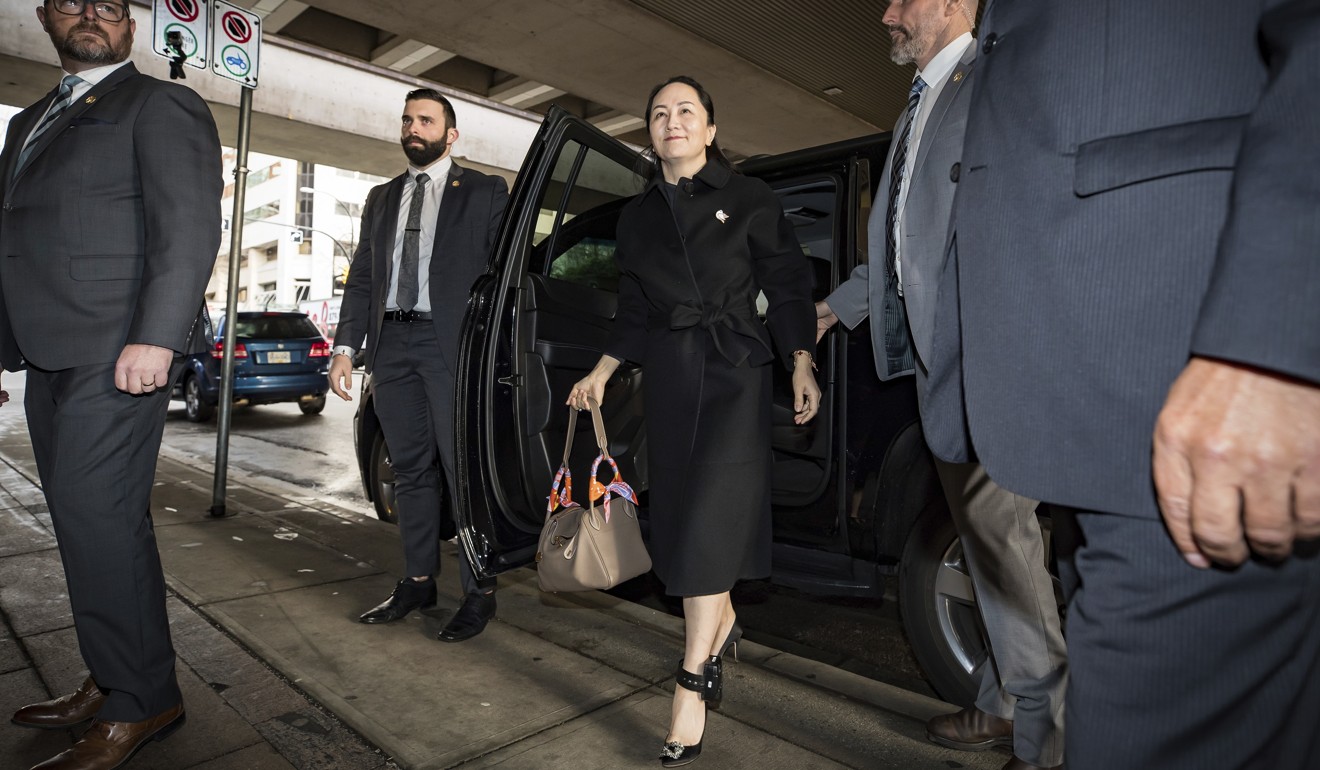
The second day of Huawei executive Meng Wanzhou’s high-stakes extradition hearing got under way in Vancouver on Tuesday, with her lawyer coming under intense questioning from the judge over his claim that Meng’s alleged conduct would not have constituted fraud in Canada, failing the extradition test of “double criminality”.
Meng’s lawyer Eric Gottardi started the day by responding to Justice Heather Holmes’ question, issued on Monday: if Meng’s alleged actions had occurred in Canada, would a domestic prosecution be viable?
That is crucial. This week’s hearings are devoted to “double criminality”, the rule that an extraditable person must be accused of something that would have constituted an offence in Canada, as well as the requesting state.
“We say the answer is no, because the bank would face no liability [for the alleged fraud],” Gottardi said.
Meng, Huawei’s chief financial officer and a daughter of company founder Ren Zhengfei, is accused of defrauding HSBC by lying about its relationship with an affiliate doing business in Iran, potentially leaving the bank exposed to the financial risk of prosecution for breaching US sanctions on Iran.
The HSBC meeting at the heart of the case took place in August 2013 in a Hong Kong teahouse.
Gottardi said no risk of financial loss to the bank existed in Canadian law – the country had placed banking sanctions on Iran in 2013, but lifted them in 2016. The bank, as an “innocent victim” of alleged deception by Meng, would also not have been liable under US law., he said.
But Justice Holmes repeatedly pressed Gottardi on the hypothetical, asking whether all elements of financial loss needed to occur in Canada for a fraud to be prosecuted there.
This week’s long-awaited hearing, 13 months after Meng's bombshell arrest in Canada, is expected to last until Thursday or Friday.

On Monday, Meng’s lead lawyer, Richard Peck, called the fraud case against her a “fiction”, invoking Canada’s sovereign status to reject the allegations against her as an invalid application of US laws. “This allegation is founded on a breach of US sanctions, sanctions Canada has repudiated,” Peck said.
Turning to details of Canadian fraud law, another of Meng’s lawyers, Scott Fenton, on Tuesday said “the attorney general has misapplied the law”.
“All risk [in Meng’s case] is driven by sanctions risk in the US,” Fenton said. “What is peculiar about this case is that all risk is driven by legal risk … I’m not aware of any other [than this case], where the risk relies on legal risk [of prosecution or fines]. It is an extraordinary use of the instrument of fraud.”
Fenton said that the fraud risk of economic deprivation for HSBC, as a result of sanctions penalties, could not have occurred under Canadian law if the bank did not act deliberately and was itself the victim of misrepresentation – in this hypothetical case, by Meng.
“We say that can’t happen,” added Fenton.
Justice Holmes suggested that even absent the risk of direct financial penalties, if HSBC had inadvertently breached US sanctions on Iran, “one could foresee” that the bank might suffer “reputational risk” if it became known it had been doing business in Iran.
But Fenton countered that “there is nothing wrong” and no reputational risk in Canada to a bank doing business in Iran. “In fact, our government supports it,” he said.
Meng was arrested on a stopover at Vancouver’s international airport on December 1, 2018, at the request of US authorities who wanted her to face trial in New York on the bank fraud charges.
The case has infuriated the Chinese government, which claims Meng is the victim of a political prosecution and has called for her immediate release.

China took two Canadians, Michael Kovrig and Michael Spavor, prisoner after Meng’s arrest, accusing the pair of spying; but their arrests are widely seen as retaliation for Meng’s detention and extradition hearing.
The Meng case marks a pivotal moment in China’s relations with the West, amid the US-China trade war and global debate over whether to let Huawei take part in high-speed 5G networks that will shape the internet.
Meng’s team has previously raised the spectre of political interference in the case by US President Donald Trump, who said after Meng’s arrest that he might intervene in her prosecution if he thought it would benefit the US economically.
Further court dates for Meng are pencilled in until November. But the case could stretch beyond that, given that some extradition proceedings have lasted years.
Meng is living in Vancouver in a C$13.6 million (US$10.4 million) mansion she owns. She is under the guard of a private security team, and must wear a GPS tracker on her ankle, abide by a curfew and stay away from the airport.
The case was adjourned until Wednesday, when the Canadian government's lawyers will present their counter arguments.
for our 50% early bird offer from SCMP Research: China AI Report. The all new SCMP China AI Report gives you exclusive first-hand insights and analysis into the latest industry developments, and actionable and objective intelligence about China AI that you should be equipped with.







